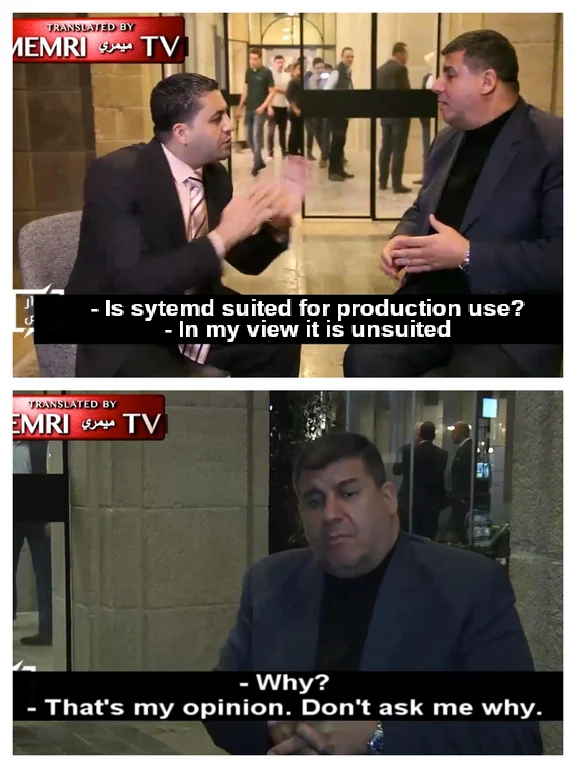this post was submitted on 23 Sep 2024
771 points (95.5% liked)
linuxmemes
21263 readers
1103 users here now
Hint: :q!
Sister communities:
- LemmyMemes: Memes
- LemmyShitpost: Anything and everything goes.
- RISA: Star Trek memes and shitposts
Community rules (click to expand)
1. Follow the site-wide rules
- Instance-wide TOS: https://legal.lemmy.world/tos/
- Lemmy code of conduct: https://join-lemmy.org/docs/code_of_conduct.html
2. Be civil
- Understand the difference between a joke and an insult.
- Do not harrass or attack members of the community for any reason.
- Leave remarks of "peasantry" to the PCMR community. If you dislike an OS/service/application, attack the thing you dislike, not the individuals who use it. Some people may not have a choice.
- Bigotry will not be tolerated.
- These rules are somewhat loosened when the subject is a public figure. Still, do not attack their person or incite harrassment.
3. Post Linux-related content
- Including Unix and BSD.
- Non-Linux content is acceptable as long as it makes a reference to Linux. For example, the poorly made mockery of
sudoin Windows. - No porn. Even if you watch it on a Linux machine.
4. No recent reposts
- Everybody uses Arch btw, can't quit Vim, and wants to interject for a moment. You can stop now.
Please report posts and comments that break these rules!
founded 1 year ago
MODERATORS
you are viewing a single comment's thread
view the rest of the comments
view the rest of the comments

Yea like the default is smart? How is it supposed to know if that's critical or not at that point? The alternative is for it to silently fail and wait for something else to break instead of failing gracefully? I feel like I'm growing more and more petty and matching the language of systemd haters but like just think about it for a few minutes????
Looking at the systems that are supported, it makes the greatest sense to have the safest failure mode as default. If fault tolerance is available, that can be handled in the entry but, it makes sense but to assume. Having that capability built into the default adds more complexity and reduces support for systems that are not tolerant of a missing mount.
Sorry if it looked otherwise, I was agreeing to BCsven. I agree with you
The system failed for no good reason, failing is exactly what it should never ever do. If it had just continued, everything would have been fine.
Edit: just saw your other comment, so this may not apply to you now....Not that the default is smart, but the default has been set to fail a boot if parts are missing. Imagine a rocket launch system check, is temperature system online, no, fail and abort. While as users -- for convenience--we want the system to boot even though a drive went offline, that may not be best default for induatrial applications. Or where another system relylies on first one to be up and coherent. So we have to use the nofail option, to contine the boot on missing drive.